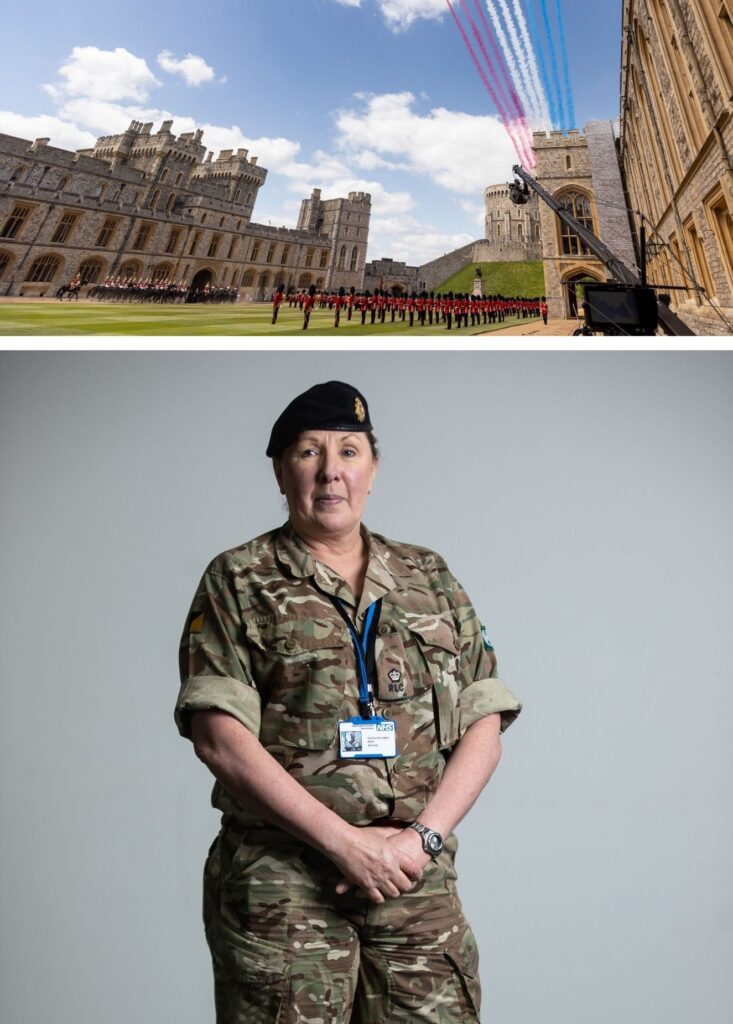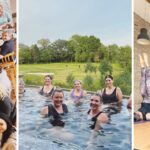- Work Hard
- 23rd Jun 2021
- 2.2k Views
- 0
- 7 minutes
HLN meets…Dee Herraghty

Ahead of Armed Forces Day this Saturday, we caught up with Officer Commanding Dee Herraghty to find out what being a woman in the British Army is really like
For any woman out there breaking into a stereotypically male-dominated industry, we know how daunting it can feel. But think back to Britain nearly 40 years ago and then imagine joining up for the Army… pretty next level, right?
But that’s exactly what Officer Commanding Dee Herraghty did. From weapons to warzones – and doing plenty of the ‘heavy lifting’ herself – Dee isn’t one to be messed with. She’s broken the mould of what was expected of a woman and she’s done it with aplomb. And why not? We’re just as powerful as men. You go, girl!
At the age of just 21, Dee joined the Women’s Royal Army Corps as a Reserve. Her hard work soon paid off – in her 38 years of service, she’s shot up through the ranks from Private right the way to Officer Commanding of 883 Postal Courier Squadron Royal Logistics Corps, which is almost unheard of.
And while we’re very much of the opinion that all you strong, brave, inspirational women who risk your lives day in, day out to serve our country deserve celebrating always, we thought when better for us civvies to shine a spotlight on your work and raise a glass (or two) to you all then this Saturday (26th June), on the UK’s Armed Forces Day.
That’s why we caught up with Dee a few days early – to find out what made her first join up, what attitudes have been like from her male comrades, how she’s helped construct the Nightingale Hospitals during the COVID pandemic, and what it’s really like being a woman in the Army…
So Dee, what made you first want to join the Army?
I wanted to do something totally different. I didn’t want to do what all the rest of the girls that I had gone to school with did. I didn’t want to be a hairdresser or work in a supermarket.
My father was in the Army Reserves and he suggested I go to an open event to see what goes on. And that’s exactly what I did, back in 1984. I jumped straight in and did as much as I possibly could – I’ve done various jobs for them now, from being a supplier to a first aid instructor.
As a woman, were you not intimated to join the forces?
I wasn’t worried because I was always a bit of a tomboy as a child. I was always out with my older brother and his friends building dens, playing cowboys and Indians. I wasn’t really into dolls and prams!
When I got there, it ended up feeling like I had 20 brothers that were looking after me and watching my back. Over my career, a lot of the courses I did in my younger days were predominantly with men… When I went to Sandhurst, for example, there were only three women and 47 men on the course. But they just become your extended family.
You’ve seen the world with your work, having been deployed to countries such as Bosnia and Iraq. How would you describe your experiences?
I’ve found it very rewarding in every sense, because you meet so many people from different places around the world, from all kinds of walks of life, and you learn a lot.
Having to communicate with civilian staff that we had in Iraq and seeing how they lived out there, it made me think. I would take pictures and send them off to my daughter to show her the local schools, how the ladies would have the contents of their kitchen on their heads, and massive camels going across the road in front of you.
What challenges have you faced as a woman in the military?
It’s not as hard as everybody makes it out to be. Don’t get me wrong, you have to put up comments like: ‘well you’re a woman, you can’t do that’, or ‘weakling, I’ll take them’, but I just took all that with a pinch of salt.
I would say things back to them, like: ‘come on then, let’s see who can lift this the quickest!’ – just to make it more of a game. Because if a guy’s going to challenge me, I’m going to challenge them back!
How do you overcome the stereotypes of being a woman in the Army?
For me, the biggest thing was trying to be part of the team, because you must always be a team. As long as you get yourself into that team of 20-odd blokes and you do exactly the same as they do, they don’t think any less of you.
But it does also depend on individuals and how they’ve been brought up. Nine out of 10 men will naturally try to protect a woman, because they’ve been told by their fathers to look after their mothers and sisters. It’s only the 1% who don’t think like that.
You helped with the construction of the Nightingale Hospital in Manchester. How did it feel to be able to make a difference during the pandemic?
As soon as I got the call, the paperwork was signed and sent off in minutes. During Operation Script, I spent four months initially dealing with the support and the actual build of the Nightingale, then I had to communicate with the local authorities to make sure we had areas for mass vehicles with kit and equipment.
And then, when the NHS decided, we then helped with various other things, such as setting up a test centre. I’ve met a bunch of fantastic people. It sounds strange, but we had a great time doing what we did.
We also hear you’ve recently been given a commendation, as well as a special award – congrats! Can you tell us a little more about what these have been for?
The commendation was given by the Lord Lieutenant for my services in support of Operation Script. The award is with the team that I’ve worked with at the Nightingale. It’s the Health Service Journal Award – a team award for the NHS staff and whoever else was working during that time. It’s great to be given some recognition.
Do you think there are more opportunities for women to progress in the Army now, compared to when you started?
Oh, 100%. There’s often no divide now in the workplace, but there’s always going to be somebody who’ll have something to say. And pay-wise, it has certainly got better – women are no longer paid less than men.
The difference is that every single trade that we have now – the Air Force, the Navy, or the Army – is open to all women. The only thing I dislike about it now, compared to back in the day, is the amount of time I spend sat in front of a computer and not being on the ground with my soldiers!
What would you say to any woman who’s thinking about joining up but who may feel cautious about taking the plunge?
I would 100% just say give it a try. If you’re not sure whether to go all-in for the regulars, they join the Army Reserves. You can do a couple of years in that, and it may just make you realise that you actually can do the work and you enjoy the work.
But it all depends on what you’re after in life. If you want to do something totally different and have the chance to see the world, you can certainly do that in the Army – whether regular or reserve.
Dee now works as Head of Logistics and Procurementat military mental health charity Veteran at Ease. Visit their websitefor more information
To find more information about life in the British Army, visit their website, Facebook page or Instagram
Thanks to Veteran at Ease.










Comments